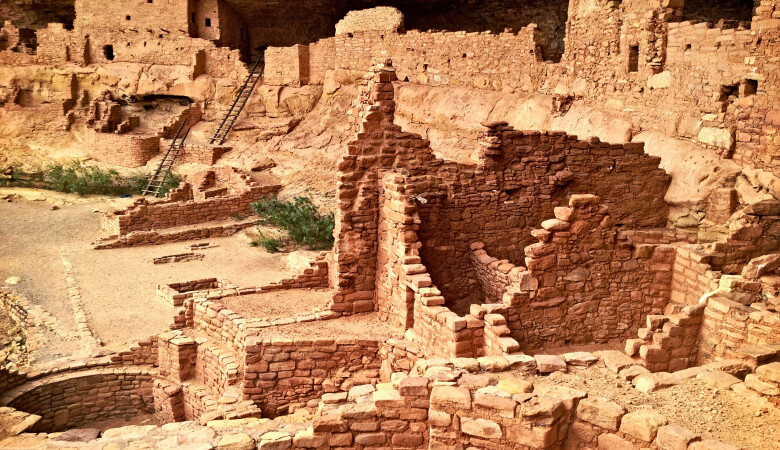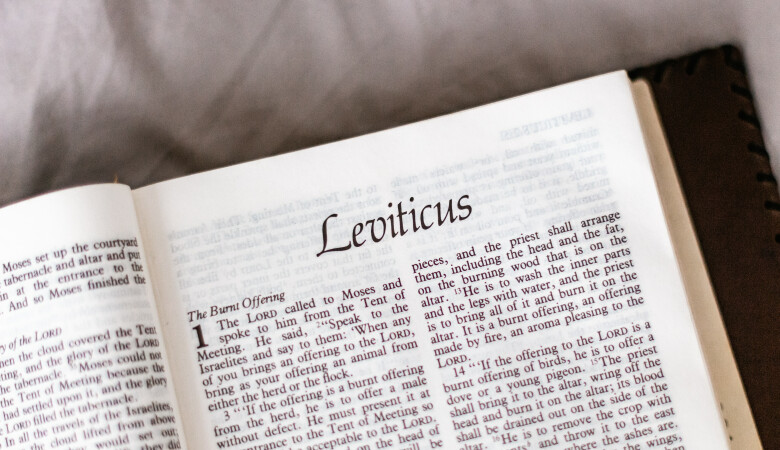The Last Will and Testament of Jesus Christ (Hebrews Sermon 36 of 74)
August 07, 2011 | Andy Davis
Hebrews 9:15-22
Redemption, New Covenant, Heaven
Squabbling Over a Vast Estate
I love history, I love stories from history, I like to study key moments in history, and obscure moments in history. And I want to bring your mind this morning to one of the more obscure moments in history, but still fascinating, at least to me, hope it will be to you as well. On November 12th, 1877, the scene was Manhattan, New York City, and it was the trial of the decade and didn't even involve a crime. It was a dispute over a last will and testament, the last will and testament of the wealthiest man America had ever seen up to that point, Cornelius Vanderbilt. And so, they were assembled that day, the courtroom was absolutely packed, couldn't get another person in, fascinated to try to find out more things, more of the secrets of the Vanderbilt family and of the Vanderbilt fortune. And a little before noon, William H. Vanderbilt, who was his son and his central heir, came in, confident, taking a seat with his legal team, he was pitted against his sister, Mary, who thought that it was unjust that their father had left 95% of the estate to the son.
And so she thought it was right, even though it was clearly the last will and testament of the Commodore, of Cornelius Vanderbilt, to contest this will and argue that the estate should be distributed equally among the 10 living descendants. Now, the sum that they were wrangling over was an astounding $100 million. And if you know anything about economics in the mid-19th century you'd realize just what a fantastic sum that was. Basically, if the Commodore's full estate had been liquidated, everything sold at market value, which would have been impossible, but if everything could have been sold, he would have received, in effect, one out of every $20 in circulation in the United States of America. I mean, one twentieth of the wealth, of circulating money was the Commodore's. Incredible amount of money.
Well, the trial went on for two years, two months and four days. In the end, the Commodore's last will and testament was upheld. William H. Vanderbilt inherited 95%. He did, however, double the amount given to each of his siblings, and hoped that they would be happy with that. The money did them very little good. As a matter of fact, one of Vanderbilt's other sons committed suicide five years after receiving this vast sum, and I think it's so often the case that money doesn't actually solve problems in that way; it can actually create many problems. The idea of the reading of a last will and testament, of an inheritance coming from a wealthy relative, maybe one you didn't even know you had, captures the imagination, but the facts show that about 8% of Americans receive any kind of money at all from an inheritance. It's really a very small number, and the amount given is actually very small. Most of the sums are far less than $25,000 dollars.
The Incredibly Inheritance in Christ
But yet it captures our imagination, though it ought not to, because I'd like to just by the preaching of the word lift your eyes up, off of the mundane, off of mansions like the Biltmore and all that, that the money eventually went for that, and to other things. And lift your eyes to how fabulously wealthy Christ's heirs are through faith in him. That if you are an heir of God and heir of Christ Jesus, you are infinitely wealthy right now. And I want to, it's my desire as I preach to give you a sense of that, a sense of the cost of giving you that inheritance, the death, the bloody death of Jesus and to, in some way, I guess, beguile you away from anxiety, selfishness, worldliness so that you are free to walk as truly forgiven sons and daughters of the living God and to serve him selflessly, and not show any concern whatsoever for your own material support, to know that you are completely provided for. That's what I want to talk to you about today, and I basically want to organize my comments into two main headings.
Little by little, more and more insight has come to me in reference to this passage. It started in verse 22. For me, it's a rather famous statement, something that we understand, "Without the shedding of blood, there is no forgiveness." And that talks about this covenant, the blood of the covenant, a covenant that's been established through the blood of Jesus. But earlier in the text we're looking at, it talks about it a will or a testament. The confusing part for commentators is the same Greek word is used for both will, like last will and testament, and covenant and so commentators debate and are discussing all the time. Is it a will, is it a covenant? Friends, it's both, it's both. We're talking about an incredibly deep, an infinitely deep work of the Son of God on the cross. And no one analogy is going to exhaust all of the meaning, and so in this text we have both a last will and testament, and we have a new covenant established through the blood of Jesus.
And so has as I look at verse 22, "Without the shedding of blood there is no forgiveness." Earlier, this teaching is given essentially without the death of the one bequeathing the goods, there is no inheritance. You've got to have the death of the one who makes the will, is what the author is telling us. So the two statements I want you to hang your hat on, so you can just understand Hebrews 9:15-22 is without the death of Christ, there is no inheritance, without the blood of Christ, there is no forgiveness. That's a summation of what this text is saying.
It is unbelievably hot in here this morning, isn't it? Just acknowledge that. We are working, the AC is out, our offices are hot, and so you are not permitted to get drowsy. So I'm going to modulate my voice. I'm going to look right at some of you from time to time. You're not permitted to get drowsy this morning, alright? But counter to what I just said, you have the outline right now, that's it. Without the death of Christ, we have no inheritance, without the blood of Christ, we have no forgiveness. But that's putting the negative language of verse 22. Let's turn it around and make it positive. Because Jesus died for you, you are an heir of God, you have a vast inheritance, and because Jesus shed his blood for you, you are completely forgiven of all your sins. There it is. So that's the two-part outline that we're working on, but we're just going to go verse by verse as we usually do to try to understand this more fully.
I. Christ the Mediator of a New Covenant (vs. 15)
Look at verse 15. Christ is here presented, as we've already seen, the mediator of a new covenant. For this reason Christ is the mediator of a new covenant that those who are called may receive the promised eternal inheritance, now that he has died as a ransom to set them free from the sins committed under the first covenant. So the author begins in this section for this reason. This is why Christ is the mediator of a new covenant. What is the reason? He answers the question why, what is the reason? So that we who are called may actually get our inheritance. That's the mentality, or the idea is without this new covenant, the covenant Jesus came to bring, we would not receive the inheritance, it would be intended for us, but it would never get to us.
And God wants this inheritance to be absolutely guaranteed, so he puts all of the work in the hands of his son, so that the job gets done. That's the mentality here. And so God wants this inheritance absolutely guaranteed. We get the same idea here in Romans 4:16. There the Apostle Paul writes, "Therefore the promise comes by faith, so that it may be by grace and may be guaranteed to all Abraham's offspring." Same kind of idea, God entrusts these issues of promise, faith, grace equals guarantee. The bottom line here is if we are involved in any significant way here, we will fail, we will not receive the promised eternal inheritance. It must be of grace alone, it must be by faith alone, it must be by Christ alone, or else we won't get it. And so God really wanted this inheritance to be guaranteed, and so Christ is the mediator of a new covenant, this is why he is.
Now, a covenant is a binding agreement between two or more parties. The mediator of the covenant is a go-between who takes care of the details of the covenant, communicates the stipulations, the blessings of that covenant, etcetera. The Old Covenant was mediated to us through angels by a mediator. It says in Galatians 3 that mediator was Moses, Moses was the human mediator of the Old Covenant. But we need a mediator between us and God. Job cried out for this in Job 9. He says, "God is not a man like me, that I might answer him, or that we might confront each other in court." We can't do that. "If only there were someone to arbitrate between us, to lay a hand upon us both, someone to remove God's rod from me so that his terror would frighten me no more." Job is yearning for Jesus, isn't he? He's yearning for what it says in 1 Timothy 2, "There is one God and there is one mediator between God and man, the man Christ Jesus." And so Jesus is the mediator, the go-between, who brings to us this new covenant.
And this new covenant we've already described, we've looked at the aspects of it in Hebrews chapter 8, from the words of Jeremiah 31, this new covenant that Jeremiah, that God promised through Jeremiah. "The time is coming," said the Lord, when he would make a new covenant with the house of Israel and with the house of Judah. It would not be like the first covenant he made with their forefathers, because they didn't keep it. God's wrath had to break out against them. "But this is the covenant I'll make after that time," declares the Lord. "I will put my laws in their minds and write them on their hearts. I will be their God, and they will be my people. No longer will a man teach his neighbor or a man his brother, saying, 'Know the Lord,' for they will all know me, from the least of them to the greatest, for I will forgive their wickedness and remember their sins no more." Those are the stipulations of the new covenant, that the Lord Jesus has come to bring, and the author makes it very plain at the end of Hebrews 8, in verse 13, "By calling this covenant new, he's made the first one obsolete and what is obsolete and aging will soon pass away." This is a new covenant. Now, I believe that when it comes to personal salvation, when it comes to individual salvation, there has only ever been one covenant.
At the end of Hebrews in Hebrews 13 it talks about God who through the blood of the eternal covenant brought back from the dead that great shepherd of the sheep. The blood of the eternal covenant. Friends, we get saved the exact same way that Abraham got saved, by faith in Christ. There's only ever been this one covenant; therefore, the new covenant really equals the eternal covenant. The blood of the eternal covenant is the blood of the new covenant, they are one of the same, and that is the covenant that saves us. What's new is that through the work of Christ, it is clearer now who Jesus is, the fulfillment of the promise has happened. We can look back on history, not look ahead to prophecy, and we can see this has already been achieved, but it's the same covenant. God and eternity passed before the creation of the world will give to his elect total and complete salvation. He knew who they were, he knew them by name, and he made a covenant with his son, that if his son would shed his blood for them that he, God, would forgive them of all their sins, and that God would exhibit grace to them through the sovereign spirit. At the right time, he would call them into fellowship with himself, through repentance and faith in that gospel message, they would be saved.
That's the covenant, that's the eternal covenant made in the council of the trinity, Father, Son and Spirit, now revealed in time by what we call the new covenant, the blood of Jesus shed on the cross. This is this covenant that Jesus has come to bring, complete and total salvation from all of our sins. And so for this reason Christ is the mediator of a new covenant, that those who are called may receive this promised eternal inheritance, those who are called are the elect, the chosen ones, the ones we have discussed before, and they are sovereignly called by the grace of God. God is at work drawing the elect, he's at work, drawing them to himself. Throughout their lives, they're hearing scripture, they're bumping into aspects of the Gospel, but they're still in some mysterious way dead in their transgressions and sins. But they're hearing the message, they're hearing the message. And then at the right time when the day of salvation comes with the call, they hear the sound of a person's voice, or they might read it in scripture.
But they hear the Gospel, they hear of Christ crucified, the Son of God sinless shed his blood on the cross. They hear this message, and suddenly it makes sense. Suddenly, they can see the light of the glory of God in the face of Christ, in the work of Christ, and they're saved, they're called by the sovereign spirit, they're called out of darkness, into his marvelous light. And God wanted those called people to get the eternal inheritance, and so he entrusted the mediating work to Jesus, so that they can most certainly get what he intends to give them.
Now, what is this promised eternal inheritance? Well, God has willed to give us stuff. He's willed to give us valuables, he wants to give us immense valuables for all eternity. From the very beginning, God wanted to entrust the world to the human race, and so the world was their inheritance, Adam and Eve's inheritance. The problem is they sinned their way out of it. You remember how God had said to them, "Be fruitful and multiply; fill the earth," and they sinned, they violated God's laws and they were evicted from the garden of Eden and God put a flaming cherubim to guard the way back into the Garden of Eden back so that they could not eat from the tree of life and live forever. So they lost it, they lost their inheritance, and then in the right time then God called Abraham, and he made certain promises to him, Abraham, promises of the land, promises of fellowship with himself. In Genesis 13, after Lot separated from him and went down to Sodom and Gomorrah, God said, "Go through the land, look around. I'm going to give you this land to you and to your descendants as your possession forever." So there's the aspect of the land.
And then after the War of the Kings in Genesis 14 and the Melchizedek chapter that we've looked at in the past, then, in Genesis 15, when Abraham said, "I'm not going to take anything of their loot lest they say, that they made Abraham wealthy," God appears to him and says, "I'm going to make you wealthy, I'm going to make you infinitely wealthy, I'm going to give you myself. Do not fear, Abraham, I am your shield, I am your very great reward, I am what you get." And so those are the two aspects of the inheritance: Goods, property in some sense and God himself. And so, it says it is the "promised eternal inheritance." Promised because God has pledged it to us, he has sworn his fealty to it, he will most certainly keep this promise. God in effect the covenant cutting ceremony with Abraham, said, "May I cease to exist as God, if I don't keep this promise."
God cannot lie, and he's promised us this in Jesus, and it's a promised eternal inheritance. It means he's not going to give it and take it away later, it's going to be ours forever. You're going to be wealthy forever and ever, and this inheritance will come to you in good time, at the right time. So in Romans 4:13, it says, "It's not through law that Abraham and his offspring received the promise that he would be heir of the world." Meditate on that phrase. Where did that come from? Heir of the world. I thought it was heir of Palestine. No, no, no, heir of the world. As Jesus said in the Sermon on the Mount, "Blessed are the meek for they will inherit the earth." We're going to get it all, friends. Why fight over it now? It's really wrecked right now, anyway, it's under a curse. It's going to be refurbished in a huge way, the new heavens and the new earth will be, it will be magnificent.
And best of all, we get God. There is your eternal inheritance, the promised eternal inheritance. And so I think one verse kind of sums all of that up. It's Revelation 21:7, and there it says, "He who overcomes will inherit all this, and I will be his God, and he will be my son." Isn't that beautiful? So you get, you'll inherit all this. What's that? The New Jerusalem new heaven, new earth, all of it, you get it all and I will be your father, and you'll be my son. How beautiful is that? So, that's what Christ, that's the inheritance. Christ came to give.
My question now is how is it Christ's to give? We're gonna be talking in a moment about the last will and testament of Jesus Christ. How did it come to him to even give it to us? Well, if you go way back to Hebrews chapter 1, "In the past, God spoke to our forefathers through the prophets at many times and in various ways. But in these last days, he has spoken to us by his son whom he appointed heir of all things." Christ is appointed as heir of all things, the universe is Christ's to give. God the father gave it to him to give.
And so he says in Matthew 11:27, "All things have been committed to me by my father." How about that? "It's all mine to give." Isn't it pathetic when Satan tried to tempt him with the world and said, "Hey, I'll give it all to if you'll just bow down and worship." "It's already mine and there's no way I'm going to worship you." The earth is the Lord's and the fullness thereof. And so it's all Jesus, and I think this is really the whole point of Revelation chapter 5, as God the father sits on the throne with the scroll sealed with seven seals with writing on both sides and a mighty angel proclaiming, "Who is worthy to break the seals and open the scroll?" and no one was found who is worthy. Heaven, earth, or under the earth, all creation, unworthy.
But then the lion of the tribe of Judah, the lamb who was slain for us, comes and takes that scroll from the one who's glad to give it to him, God the Father gives to God the Son the rights, the title deed, really, to the universe, it's all his. And so Christ has the right to give it. And so it says in Romans 8:17, "Now, if we are children, then we are heirs, heirs of God and co-heirs with Christ, if indeed we share in his sufferings in order that we may also share in his glory."
II. Christ’s Death Required for Our Inheritance (vs. 15-17)
But Christ's death is required for us to come into our inheritance. That's what the author is telling us here in verses 15-17, look at it. "For this reason Christ is the mediator of a new covenant, that those who are called may receive the promised eternal inheritance, now that he has died as a ransom to set them free from the sins committed under the first covenant."
Now, the first covenant was Sinai, the Old Covenant, the first covenant, the covenant of Moses. That covenant defined what sin was, exhorted the people under that first covenant not to sin, and then turned around and condemned them for the sins that were committed under that covenant, that's what that covenant did. Do you hear listed in that list there salvation at all? Any forgiveness in there? There is none. The first covenant did not have stipulations for forgiveness, it was not entrusted to the covenant of Moses to forgive sins, but merely to give a shadowy picture of the actual forgiveness of sins. And so there were sins committed under the first covenant. You think about the Ten Commandments, the people, the Israelites, they violated every one of them, continually violated them.
Jesus said, "You have heard that it was said you shall not murder, but I tell you that if you're even angry with your brother, you're in danger of the fire of hell." "You have heard that it was said, you shall not commit adultery, but if you even look at a woman lustfully, you've committed adultery with her in your heart." The Ten Commandments commanded us not to covet anything that belonged to our neighbor.
It's a heart issue. God looking at the heart, we violate that. The people under that covenant violated that covenant, they did not keep it, they committed sins. Jesus summed it all up in two great commandments, "Love the Lord your God with all your heart, with all your soul, with all your strength and with all your mind." The second commandment like it, "Love your neighbor as yourself." We don't keep that. We have sinned.
And so the Jews back then in the Old Covenant era sinned and the blood of Jesus is availed to cleanse them, the Old Covenant sinners, of their sins, and we, who were never under the stipulation of that covenant, yet, when you read the Ten Commandments, you know this is the moral will of God. We know that we have sinned too and deserve to be condemned for the exact same sins. And so Jesus, it says, has died to release us from the sins committed under the first covenant so that we can receive the inheritance.
Imagine a wealthy man, who has got kind of a ne'er-do-well son, gets into trouble all the time. This man's worth millions and millions of dollars, but the son gets into some huge legal trouble. He commits murder, is arrested, convicted, and condemned to death, but he is this man's heir. Will he receive the inheritance? Now, I don't know what happens while he's on death row, but I know this: After he's executed it's not going to do him any good. We cannot receive the promised eternal inheritance guilty of sins before Almighty God. We can't. The only way we can come into our inheritance is to have our guilt dealt with, and the only way it can be dealt with is through the death of Jesus, and so in order for us to come into our promised eternal inheritance, we must have Christ's death as a ransom to set us free. The word "ransom" could also be translated "redemption," there's a sense of the payment of a price, to buy us out of guilt, to buy us out of slavery, of bondage to sin.
And so Jesus has died to set us free so that we can be heirs. And so, it says here in verses 16-17, the logic of the last will and testament. In the case of a will, it is necessary to prove the death of the one who made it, because a will is in force only when somebody has died. It never takes effect while the one who made it is living.
And so, we have here, I think, very much a last will and testament analogy. It's a picture, it's an illustration, and it's only analogy, there is no perfect analogy for the cross of Christ. There are many different kinds of pictures of the work of Christ on the cross, there's a battlefield analogy in which Christ is the victor over Satan and crushes him. There's the marketplace images where Christ pays a price to buy us out of slavery, there's the judicial image where Christ's blood is the propitiation for our sins and we're declared not guilty by the judge. All of these are true. None of them is perfect, they all have to be taken together, until we get the full picture. And so, in this text, we have both the last will and testament plus the blood of the covenant, both, don't pick and choose. I know it's confusing that it's the same Greek word that goes with both, but I think that the author's actually using that to his advantage. Both of these things are going on.
So we have the last will and testament of Jesus. That's the analogy. And what the author is saying here is that somebody who makes a will, if they want to actually give the goods to the loved ones, that person has to die. And so, this analogy comes.
Now, there are some similarities and some differences of the ordinary last will and testament. Let's talk about some of the similarities. First of all, the will is enacted only upon the death of the one who made it. Christ died, we get the stuff, that's the logic.
Secondly, the will actually disperses goods to the heirs. Goods come to the heirs, good things come as a result of the will.
Thirdly, the will legally disperses those to the heirs. They legally belong to the heirs, so you get the key to the mansion or the key to the antique Rolls Royce or whatever it is you're getting. It's yours. That heirloom jewelry was grandma's; now it's legally yours. You're not a thief, it has been transferred over to you legally.
And then the will, fourth, chooses the time and circumstances when the heirs get it. If, for example, the heirs are children and can't really handle the full inheritance, then it's put in trust for them until they become adults. Meanwhile, provision is made in the will for money coming out of the estate to support them until they become adults.
And so it says in Ephesians 1 that the Holy Spirit is the deposit guaranteeing our full inheritance, and so we get little down payments coming out of our heavenly inheritance through the Holy Spirit. Every time the Spirit whispers to you that you're a child of God, that's part of your down payment. That's part of your payment, your stipend to keep you going until you see Jesus face-to-face. Isn't that sweet? That's the power of the will. You're getting some of that heavenly inheritance coming early here on earth.
So those are four points of comparison, but there are some significant differences, too. And the differences are glorious. I want to focus on two differences. First of all, in a normal human will, when the guy dies, he's done. You know what I'm saying? This stuff will never be his again, he's finished. That would be just flat out creepy. You finally get the house, and there she is, or there he is, that's called a haunting. And I don't think that really even happens; it's in plenty of stories, but the person's dead, and so they have relinquished the goods to the heirs.
It's just, you can't take it with you, friends, I hope you know that. And so the one who makes the will, when he dies, he relinquishes it. However, Christ rose from the dead on the third day and he sits at the right hand of God the Father Almighty. This stuff is all still his and he will have it forever. He hasn't relinquished enjoyment of any of it, it's all still his. What he's inviting you to do, in the language of Romans 8:17, is to be an heir of God, and a co-heir with Jesus Christ. Does that make sense? So, the goods are all still Jesus's.
Second of all, as seen by my opening illustration, and it's a tragic thing when it happens, these wills come and divide loved ones, people squabble, they fight over it, and it's just a basic logic that two people can't share the same item. If there's a rare painting, you can't have two owners of it, you're not want to Solomon-style cut it down the middle and each of you have half. It has to be given to one or the other. And so, it's very tragic when families are divided by squabbling over money and over wills and things like that. It should never happen to a Christian.
I already told you're going to get it all anyway, at the end, right? Well, that's my whole point here. Each heir gets the full inheritance. The amount you get isn't in any way diminished when 100 new people come to Christ. Isn't that awesome? We could have another 10,000 people come to Christ, and you get the same inheritance, you get God as your Father, you get to sit at table with Almighty God, you get to be in the new Jerusalem, and you get to walk on the new heaven, the new earth and look at its beauty and live there, and you're not in any way diminished at all by more and more and more heirs. Even a multitude greater than anyone could count, from every tribe, and language, and people, and nation.
I told you there's two differences, they're both glorious, but this is the last will and testament of Jesus Christ. Then the author just moves, amazingly, into covenant language.
III. Christ’s Blood Required for Our Forgiveness (vs. 18-22)
Look at verses 18-22. "This is why even the first covenant was not put into effect without blood." You see in one verse, he's shifted over and now he's talking about covenant. This is why commentators tend to be forcing a choice between the two. I'm telling you, don't choose, it's both. The covenant was not put into effect without blood, the first covenant. "When Moses had proclaimed every commandment of the law to all the people, he took the blood of calves, together with water, scarlet wool, branches of hyssop, sprinkled the scroll and all the people. He said, 'This is the blood of the covenant which God has commanded you to keep.' In the same way he sprinkled with the blood both the tabernacle and everything used in its ceremonies. In fact, the law requires that nearly everything be cleansed with blood and without the shedding of blood there is no forgiveness."
So the focus here is on the first covenant as an analogy for the second, the final covenant, and the necessity of blood. You've got to have blood. Now, in this first covenant, the blood served as both purifier and pardoner. Sin defiles us, it makes us dirty and everything we touch becomes defiled. We are defiled, people, and the stuff we deal with becomes defiled, it must be cleansed. And the blood is given to purify that defilement. Also, there's the issue of pardon. The blood is given that we might have pardon or forgiveness.
Now, this text has some difficulties. Basically, as you read this, it's like, when did this happen? You read about this, it says that after all of the law had been proclaimed Moses said the following things to the people, etcetera. "He took the blood of calves, together with water, scarlet wool, branches of hyssop, sprinkled the scroll." The scroll is the law. He sprinkled the actual Bible with blood and he sprinkled all the people, and he spoke these words. "This is the blood of the covenant which God has commanded you to keep." And he sprinkled the tabernacle with blood and sprinkled everything else.
Well, friends, you'll read the Old Covenant, you will not find this, it's not there. Now, you read it and think, "Oh, it makes sense," but just focus on the scroll. Do you know of any time that a scroll, though, the writing was sprinkled with blood? I don't. So we have a bit of a difficulty here. You didn't know you had a difficulty. That's part of my job is to come in here and say, "There's difficulties here," but what I'm trying to do is to get you to think a little bit deeper and say, "Okay, what's going on?" First of all, we know the Book of Hebrews is not in some way flawed. The author of Hebrews didn't make a mistake here, these things happened, but I believe they were not recorded in the Pentateuch.
See what I'm saying? The author is giving us new information. Wait a minute, is he allowed to do that? Yes, he's a New Testament writer of scripture. Under the inspiration of the Holy Spirit he can do all kinds of things you and I can't do. And so sometimes the New Testament gives us information we did not have any other way. Let me give you... A plain example is in the Book of James, the very next book. In the Book of James, it talks about Elijah, saying he was a man just like us. He prayed earnestly that it would not rain, and it did not rain for three and a half years. Stop. When did that happen in the Old Testament? I know the drought, I'm talking about the prayer.
It's not there. Was James wrong? No, Elijah actually did pray that it wouldn't rain, Elijah prayed for drought. Where is it recorded? It's not recorded in the Bible, it's recorded in the Old Testament, it's recorded in the New Testament. James has given us new information. That's what the author is doing here.
Now, let's get to the main point. The issue is, yeah, there's all these difficulties, but we get it. The idea is blood was huge in the Old Covenant, we needed blood sprinkling everything used by the priests, the Levites, everything used in the Old Testament, the sacrificial system. And why is that? Because we as sinners defile everything we touch. And so even the scroll that was written with the Word of God was in some way needing to be purified because it had been touched by human hands. So that's what the author is giving us here. And so, this final principle is without the shedding of blood, there is no forgiveness. Without the shedding of blood, there's no forgiveness. Why not? Why not? Why is it that without the shedding of blood, there's no forgiveness?
A last will and testament doesn't require a bloody death on the part of the one who made the will, that's not required, just a death. But the covenant requires blood, that's why it's both last will and testament and covenant. The covenant required blood, there had to be a bloody death. Why? Well, because God linked together from the very beginning sin and death, and he told us in Leviticus, "The life of the creature is in the blood." And so he required the blood of the sinner to be poured out, the soul whose sins will die, the wages of sin is death. And so, the bloody death is a picture of God's wrath, his anger for us against our sin, we deserve to die, we deserve to be condemned forever in hell. That's what the picture is. So it's not just like the giving of blood like at a Red Cross blood drive, it's blood poured completely out to death.
God required it, and that's the simple answer. You say why is it true that without the shedding of blood there's no forgiveness? Because God says so, that's why. And God requires the shedding of blood so that there may be forgiveness, and if there is no shedding of blood, there is no forgiveness, but the glorious good news of the gospel is there has been a shedding of the blood. Though the verse is negative, yet the truth is positive. Jesus shed his blood for sinners like you and me, and because of the shedding of blood, because of the shedding of blood, we are completely forgiven of all of our sins, and because the one who made the will has died, we can receive our promised eternal inheritance.
IV. Applications
So what application can we take from this? Well, first and foremost, as I've said so many times before, come to Christ, trust in Christ, believe in Jesus for the forgiveness of your sins. Earlier verses, we talked about the plague of a guilty conscience. Maybe a guilty conscience assaulted you, even as you walked in the sanctuary today. Maybe you're very well aware of your sins and you've never trusted in Jesus for the forgiveness of your sins. There is no other savior, there's no other way to come into this eternal inheritance. Come to Jesus. Believe in him. All you do, you just look to him and you say, "Jesus, I'm a sinner, I've violated your laws. I've been a murderer in my heart, although I haven't done it with my hands, maybe. I've been an adulterer in my heart, though maybe I haven't actually committed the act, but I've done it. I've been a covetous man or woman. I've yearned for things that you've given to others. I've not loved you with all of my heart, soul, mind and strength. I've not poured myself out for my neighbor. I'm a selfish person and I need Jesus, I need forgiveness, won't you please be my savior?"
Anyone who calls in the name of the Lord will be saved. Trust in him. And for you who have already trusted in Christ, just understand the text. Remember I gave you a two-part outline? Because Jesus died we have come into our inheritance. Because Jesus shed his blood, we are completely forgiven of all of our sins. There's your two-part outline. Understand it, and then praise God for it, give him thanks. Don't fail to do it, actually stop and in your hearts, say, "Thank you, Jesus, for dying for me, that was costly. You shed your blood so that I could come into my inheritance, that my sins will be forgiven. Praise you, O Lord."
And then can you please live as wealthy people? Just live as rich heirs, as you are. Don't be anxious any more about your life, about your body, about your health, about your job, about your money. God has already given you the greatest, namely his own son dead on the cross, how would he not also along with him graciously give you everything you need for life and godliness, and then heaven at the end? So live like a wealthy person, your treasure is kept in heaven for you. Moth and rust can't destroy; thieves can't break in and steal. Free yourself up from yourself and start serving God and serving others, and don't complain anymore. Let's just make that a simple application. You're rich, so why are you complaining?
A number of years ago, I heard a biography on John Newton by John Piper. He's talking about how Newton was an incredible preacher and he used beautiful illustrations and he talked about this one illustration, I'm going to close with it. And he says, "Suppose a man is going to New York City to receive a fabulous inheritance, but on the way, middle of a rainstorm, the man's carriage wheel breaks. He gets out and he trudges in the rain to receive his million pounds or whatever it is he's going to receive, and the whole time he's muttering, 'My carriage wheel is broken, the carriage, it's broken, my carriage is... ' And you're walking with this guy. What do you want to do, other than smack him? 'What's the matter with you? I was hoping to get some crumbs that fell from the master's table, and look at you and you're complaining over a carriage wheel breaking?'"
That's a powerful illustration. And once I heard it I never forgot it. How many days do we spend muttering, "My carriage is broken, my carriage is broken." Stop doing it. You are an heir of God, and a co-heir of Christ. Jesus shed his blood for you, your sins are forgiven, he is giving you everything that has been entrusted to him so you can be a co-heir with him. Rejoice and be glad for ever more. Close with me in prayer.






























